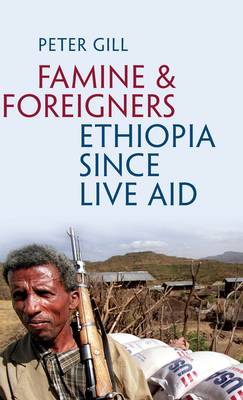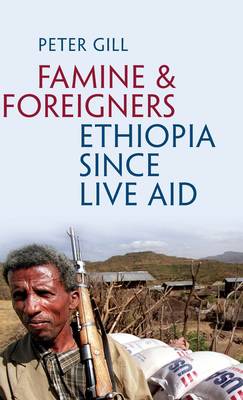
- Afhalen na 1 uur in een winkel met voorraad
- Gratis thuislevering in België vanaf € 30
- Ruim aanbod met 7 miljoen producten
- Afhalen na 1 uur in een winkel met voorraad
- Gratis thuislevering in België vanaf € 30
- Ruim aanbod met 7 miljoen producten
Zoeken
Omschrijving
The Ethiopian famine of 25 years ago was the greatest humanitarian disaster of the late 20th century, killing more than 600,000 people before the world took notice. Peter Gill was the first journalist to reach the epicenter of the famine in 1984 and he returned at the time of Live Aid to research the definitive account of the disaster, A Year in the Death of Africa. Now, in Famine and Foreigners, Gill returns to Ethiopia to piece together the real story of the last 25 years, drawing on interviews with leading Ethiopians and with an army of foreign aid officials. He conducted extensive interviews with Prime Minister Meles Zenawi and the leading development economists, Joseph E. Stiglitz and Jeffrey Sachs. Most important of all, Gill has traveled throughout the country and interviewed scores of Ethiopia's dignified but still hungry farmers. What stands out in these pages are the graphic encounters with these Ethiopians--the supposed beneficiaries of western aid--who still struggle on the knife-edge of existence. What also emerges is the often tense relationship between official aid-givers and recipients--whether in the area of economic reform or the modern demands for "governance" and political change. Twenty five years on, we can say that we did feed the world. But did we change the face of poverty, did we close the gap between rich and poor, did we fulfill the promise of "development?" A generation after Live Aid, this book questions whether any of world's big promises are being fulfilled. Have aid experts got it right? Are recipient countries allowed to pursue their own vision? Is democracy essential for banishing poverty? Now that the West faces its own economic challenges, it is time to ask whether the "development era" may be coming to an end.
Specificaties
Betrokkenen
- Auteur(s):
- Uitgeverij:
Inhoud
- Aantal bladzijden:
- 298
- Taal:
- Engels
Eigenschappen
- Productcode (EAN):
- 9780199569847
- Verschijningsdatum:
- 8/09/2010
- Uitvoering:
- Hardcover
- Formaat:
- Ongenaaid / garenloos gebonden
- Afmetingen:
- 168 mm x 223 mm
- Gewicht:
- 471 g

Alleen bij Standaard Boekhandel
+ 132 punten op je klantenkaart van Standaard Boekhandel
Beoordelingen
We publiceren alleen reviews die voldoen aan de voorwaarden voor reviews. Bekijk onze voorwaarden voor reviews.











